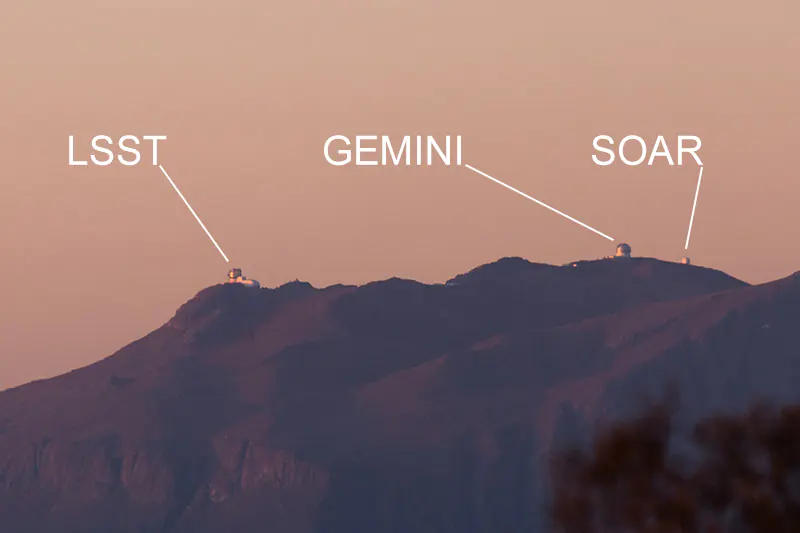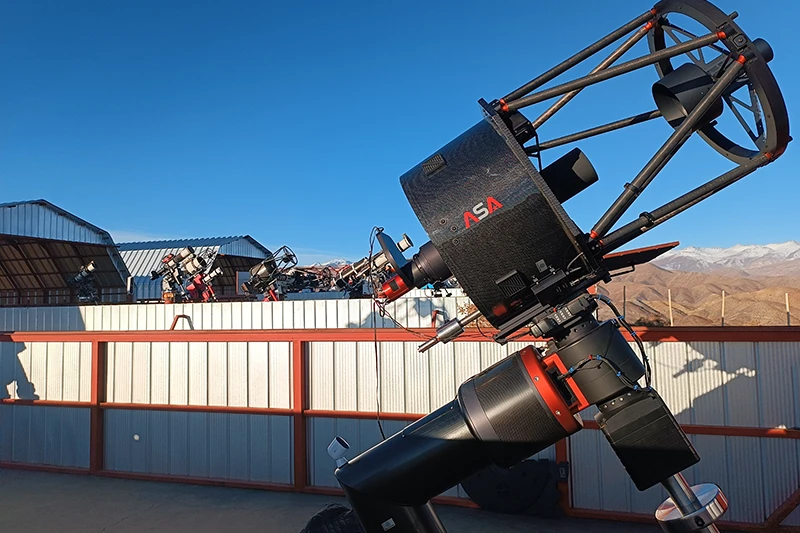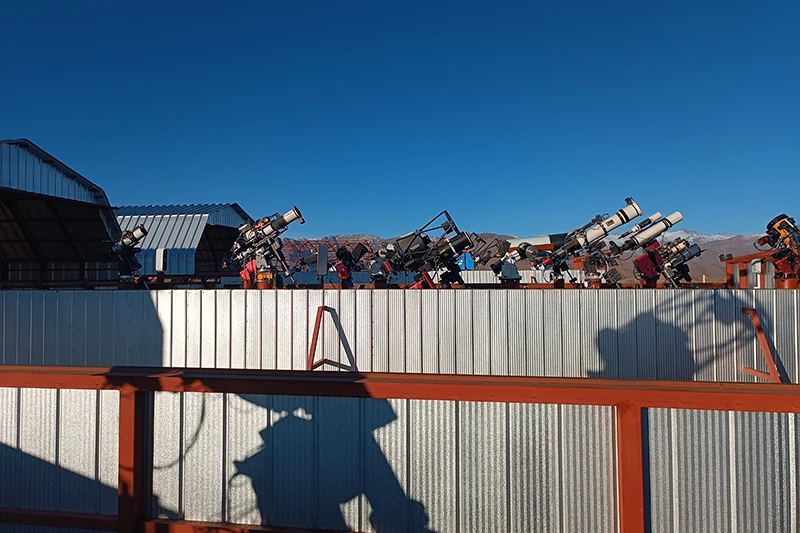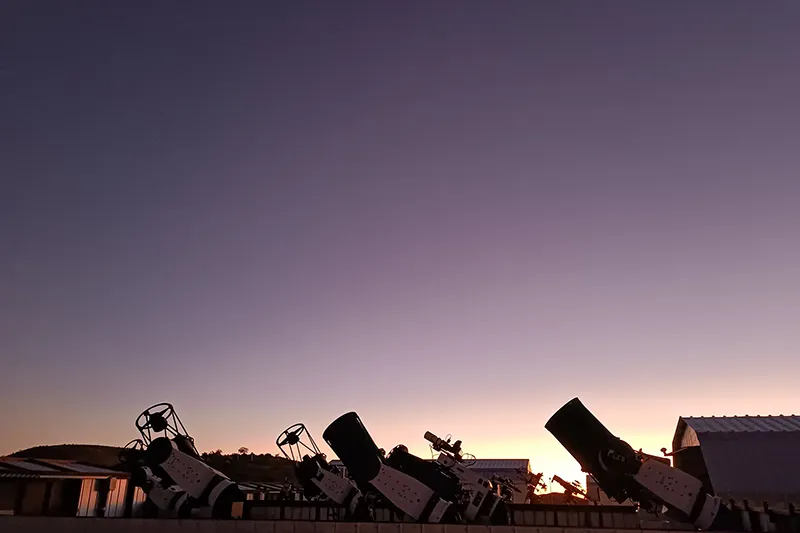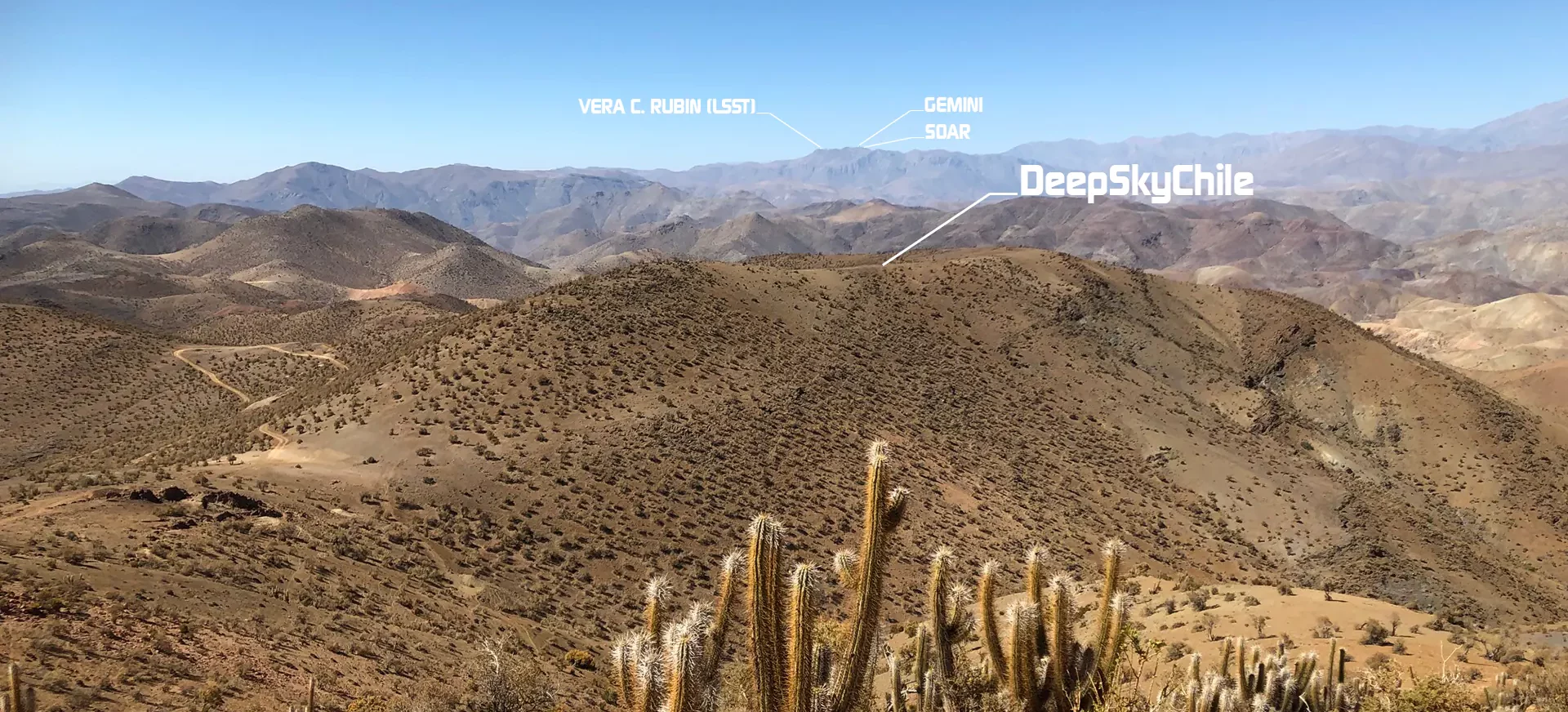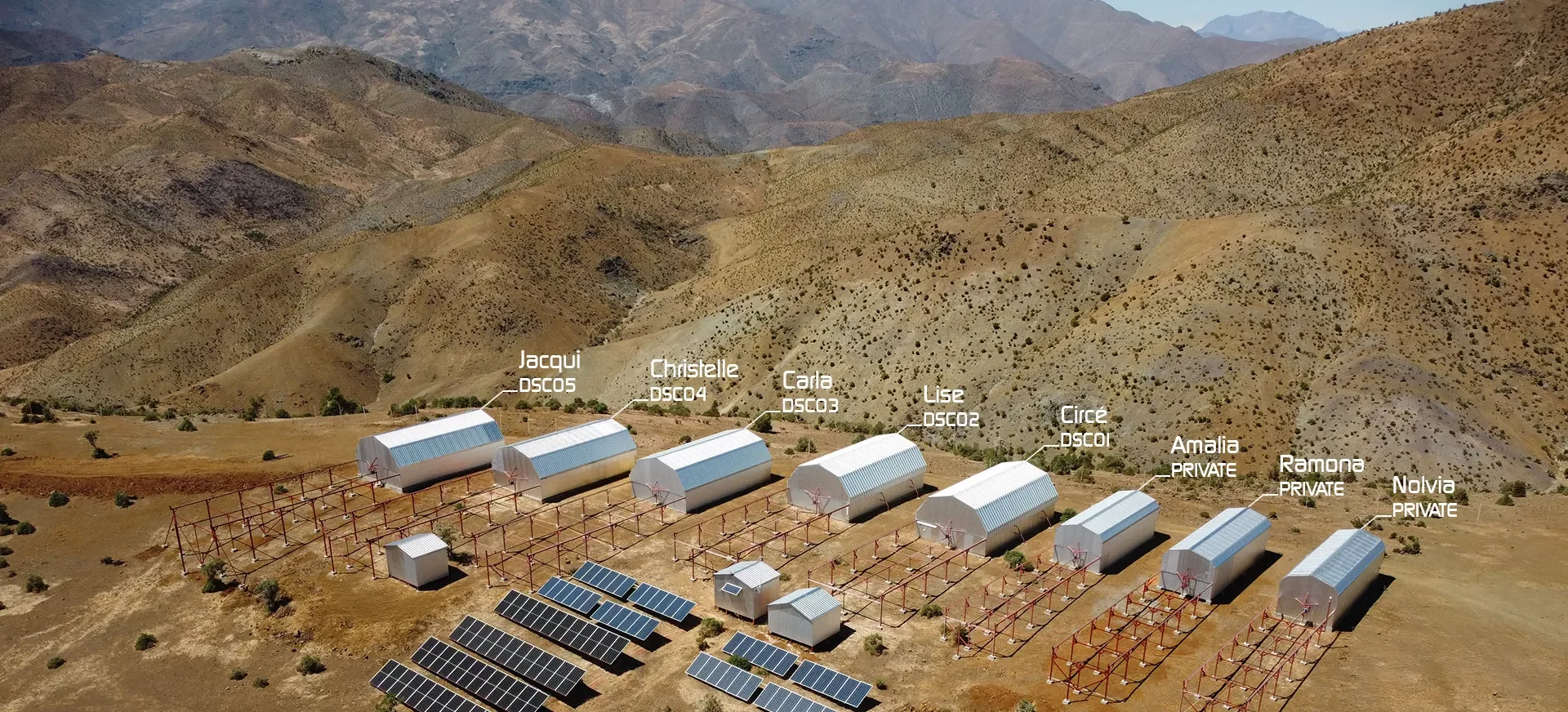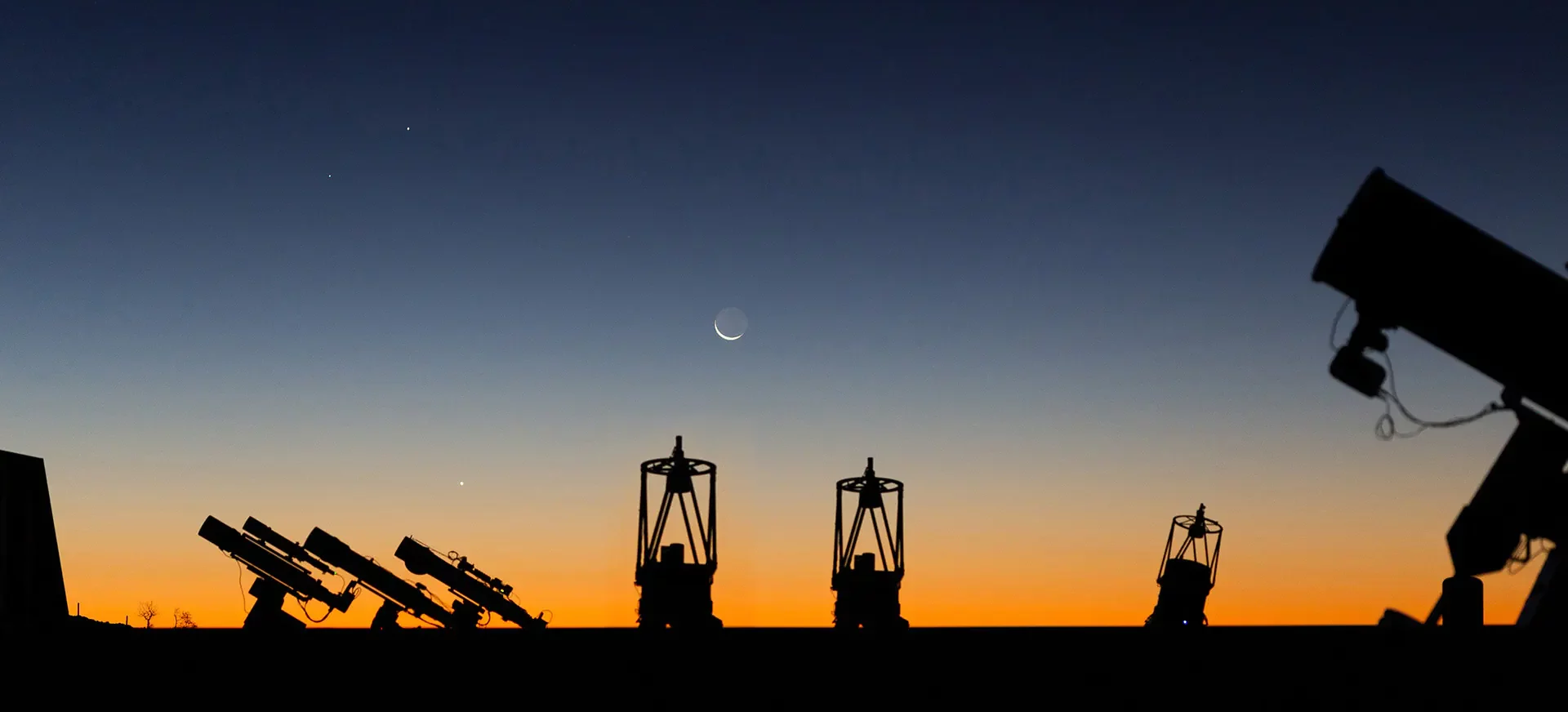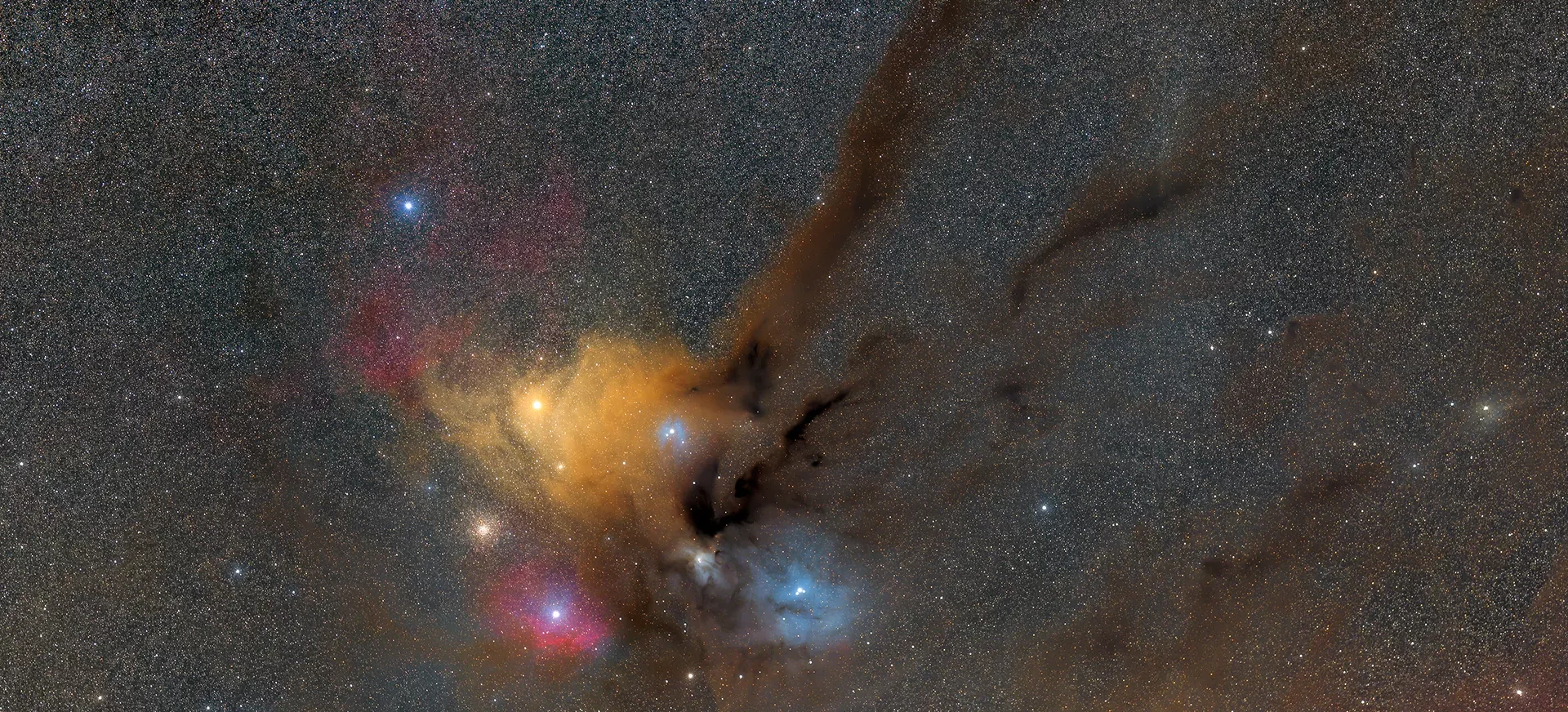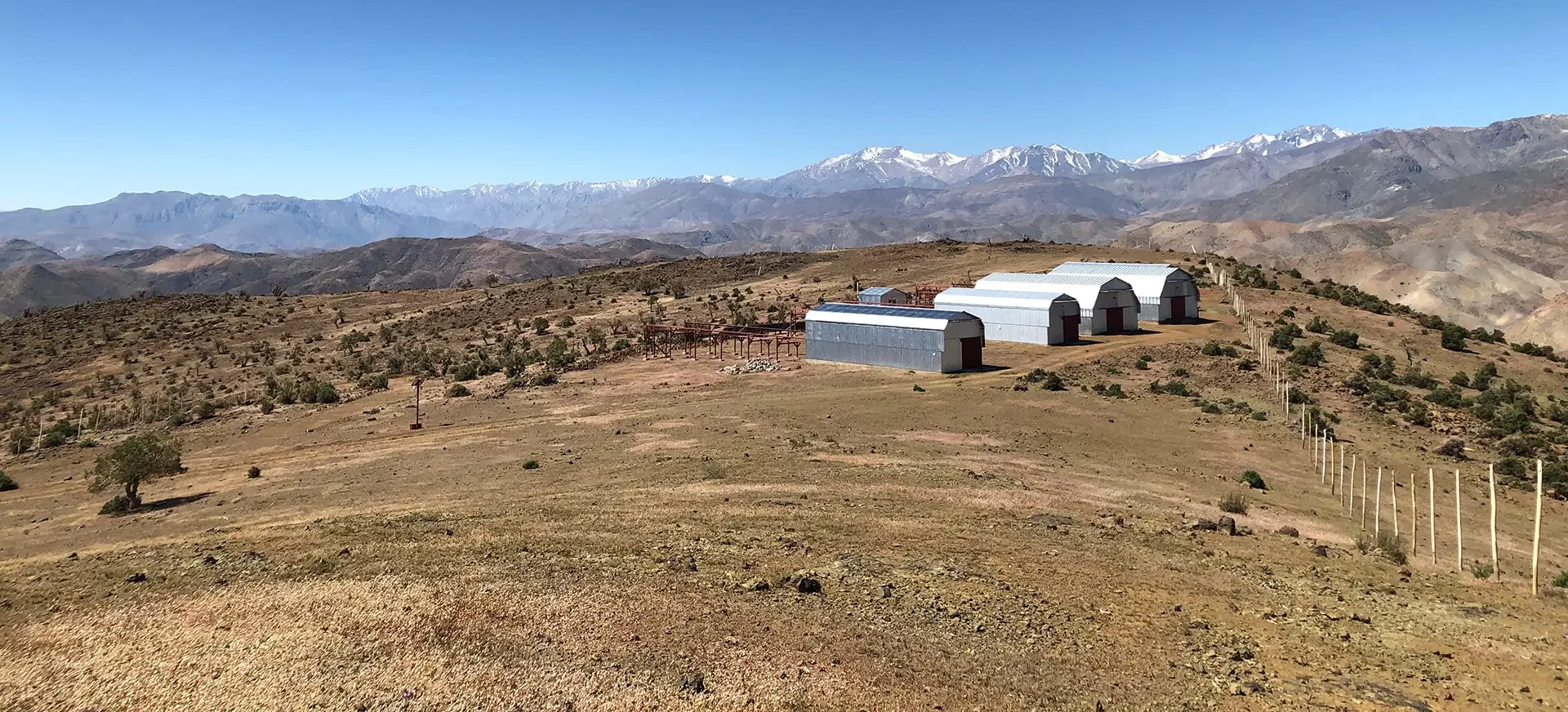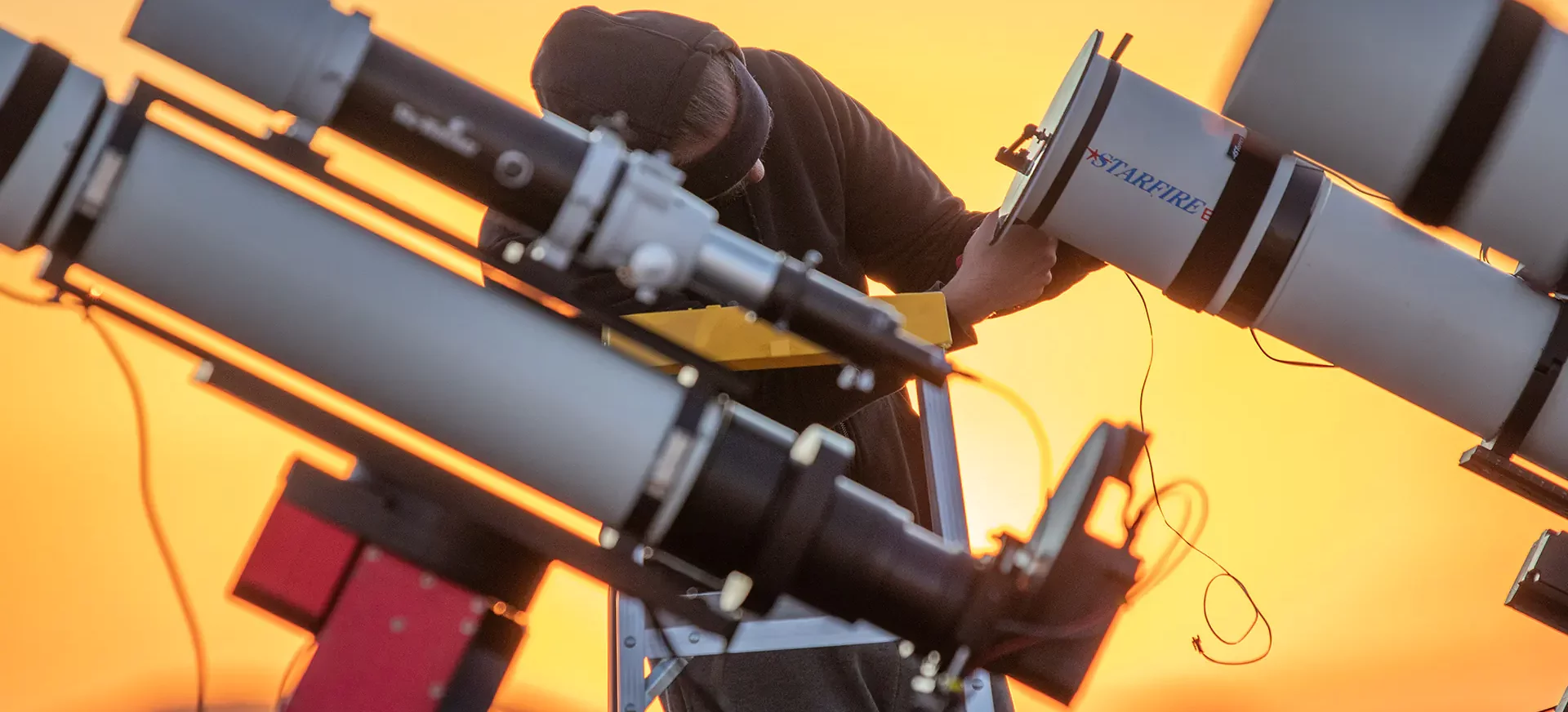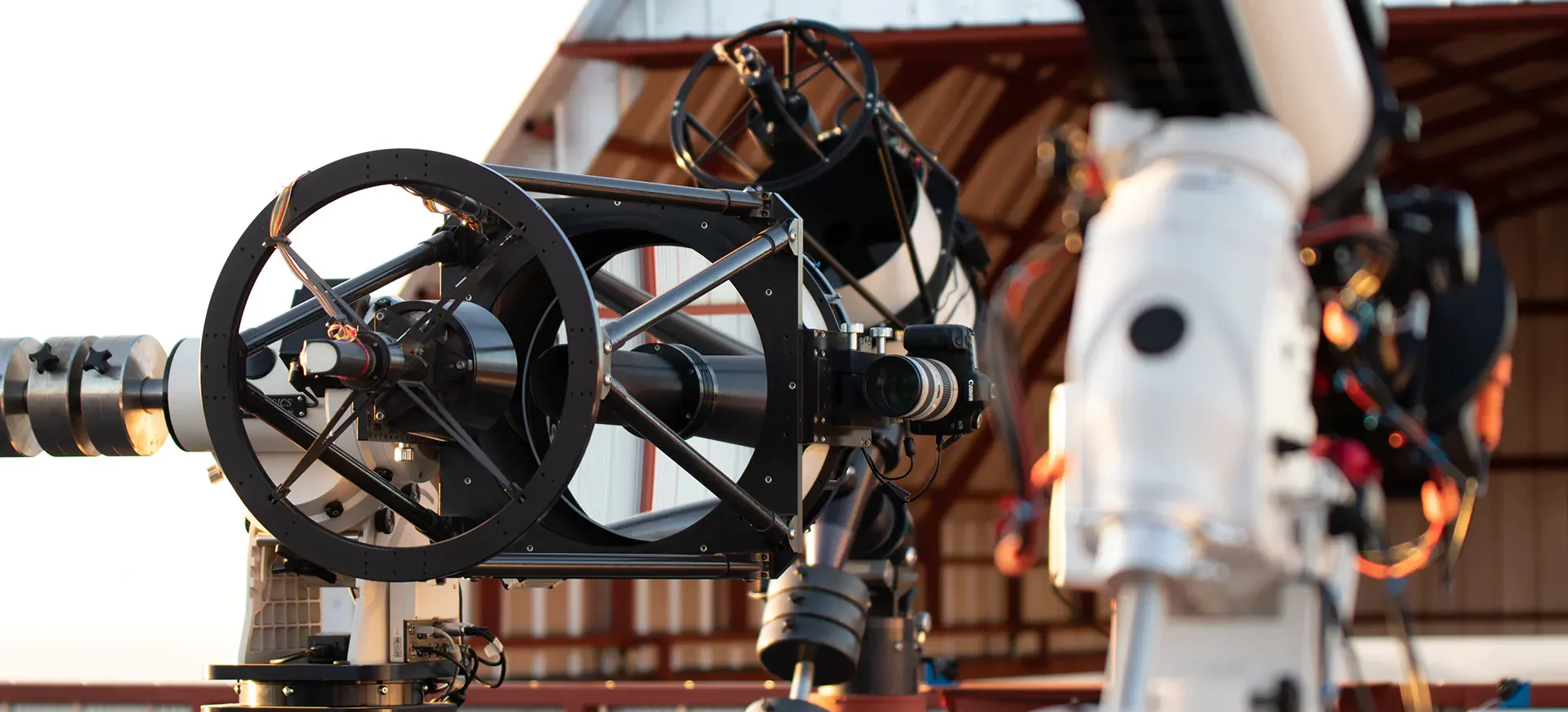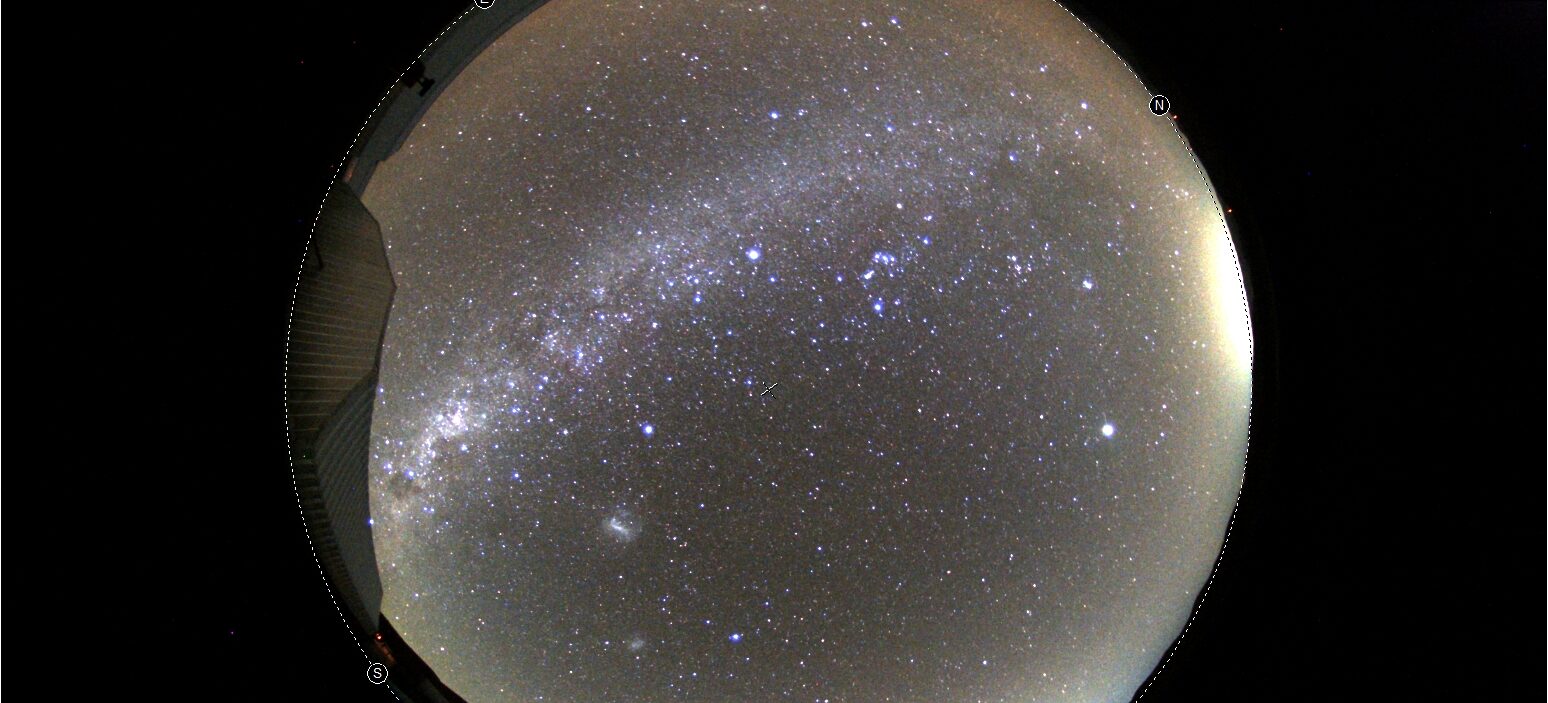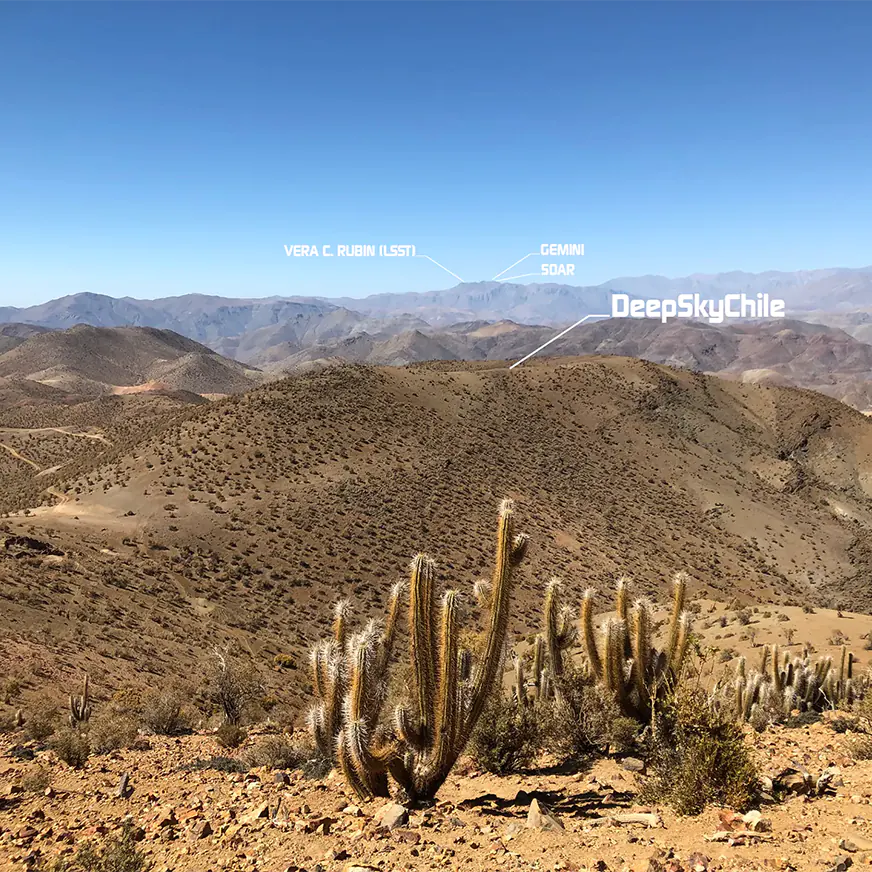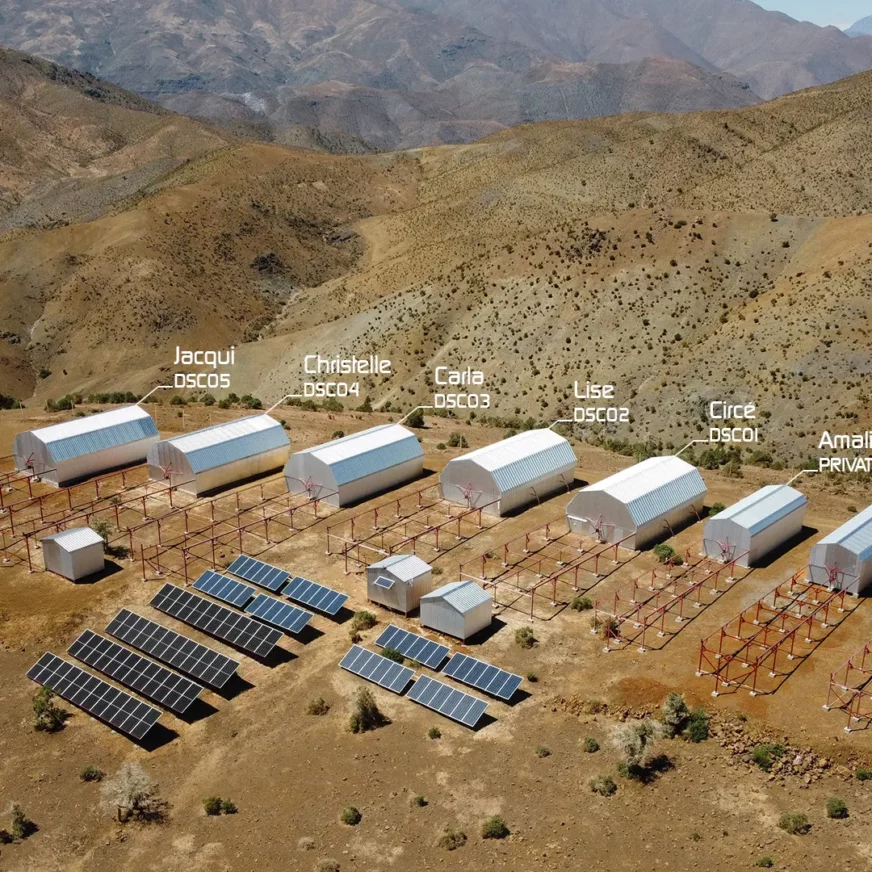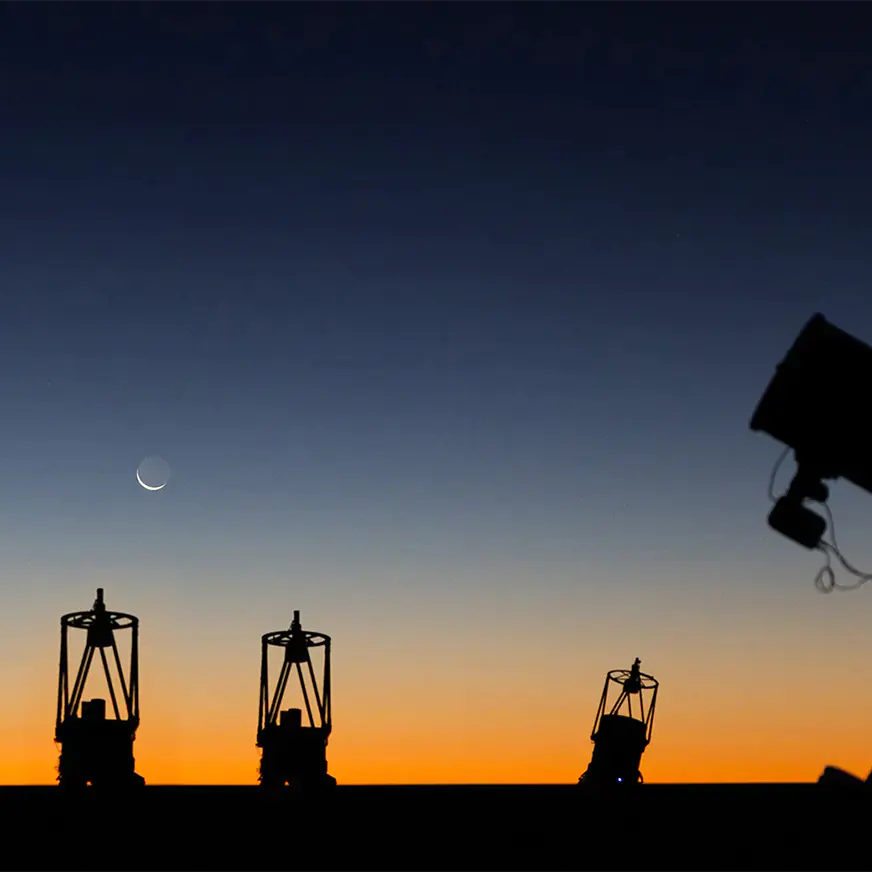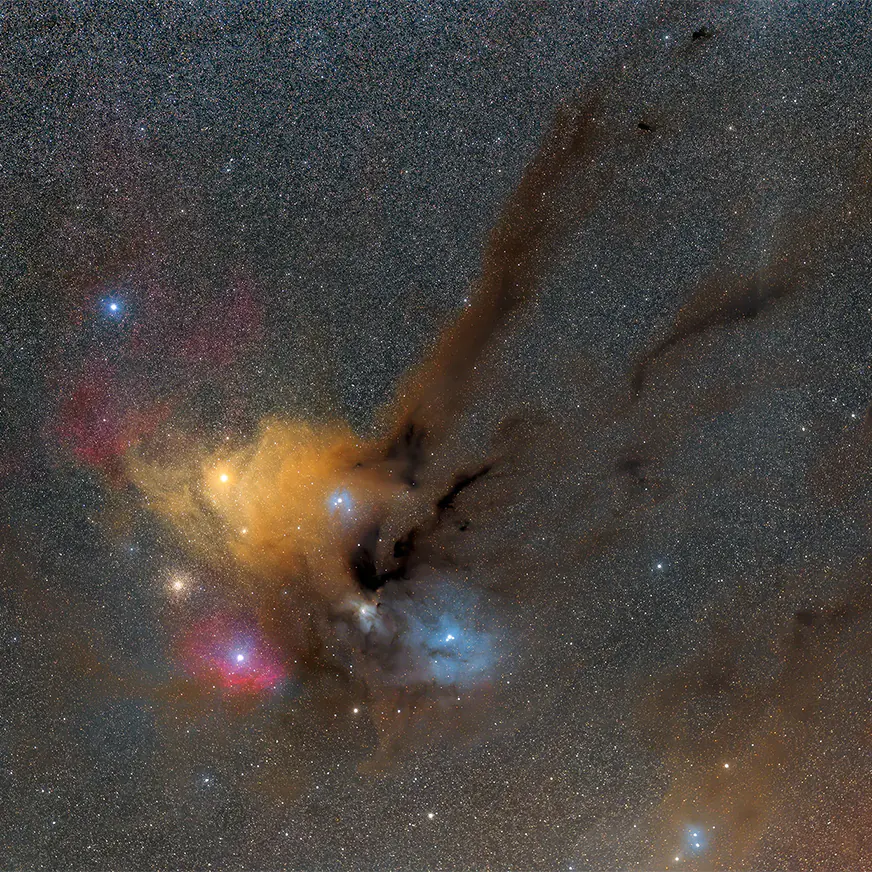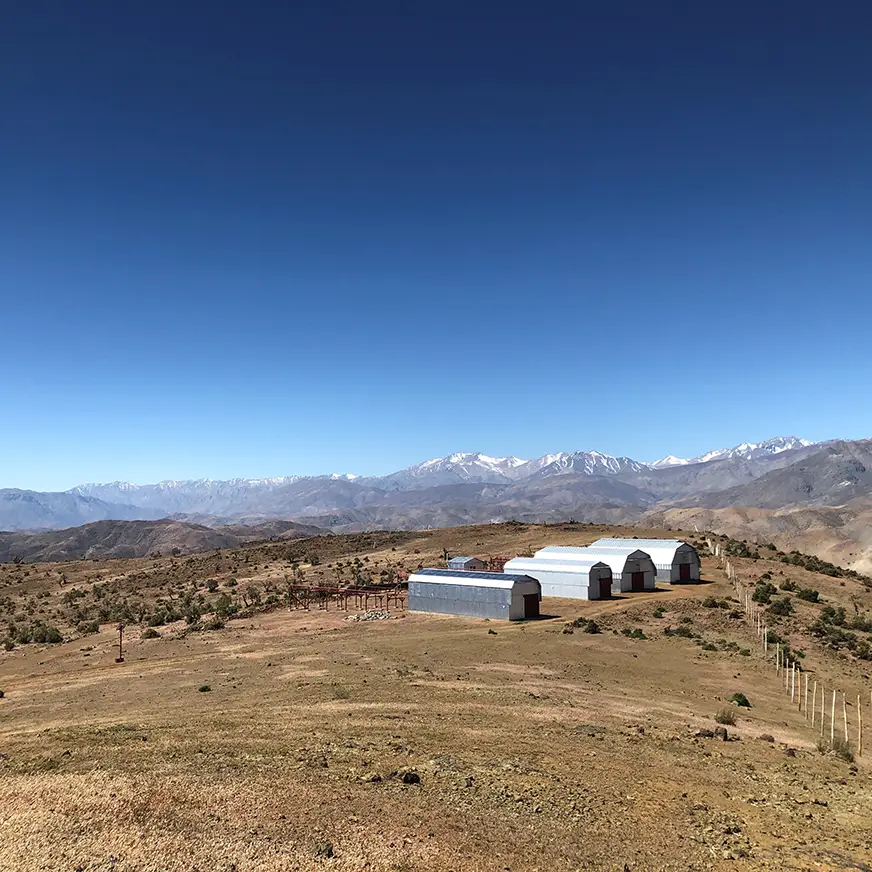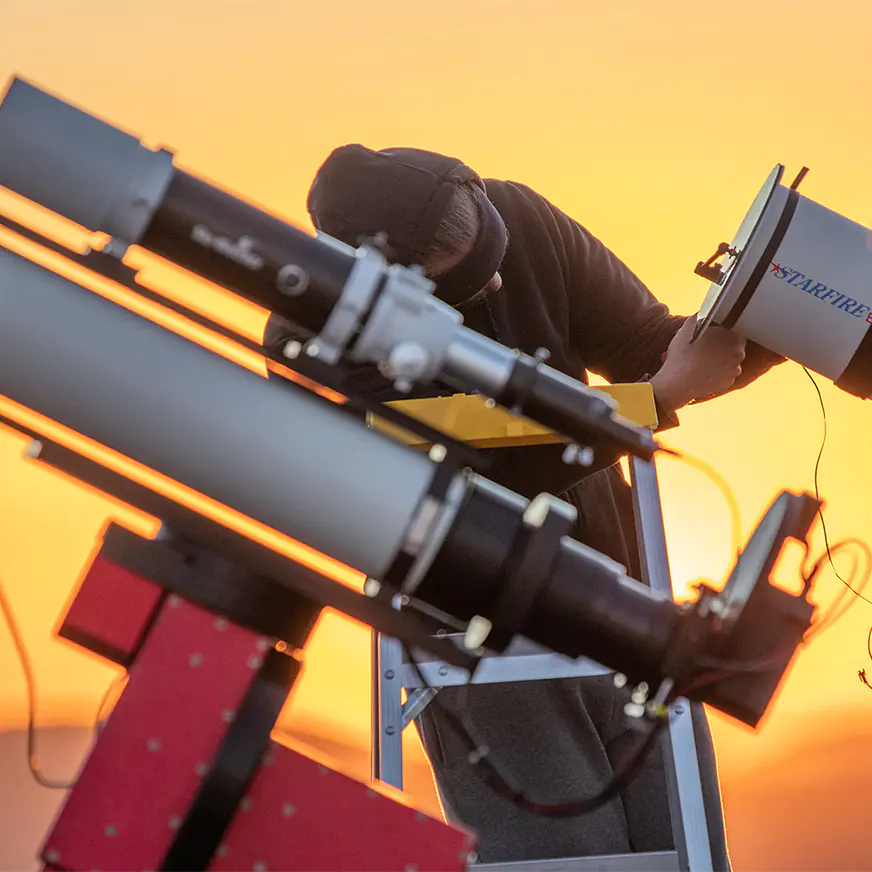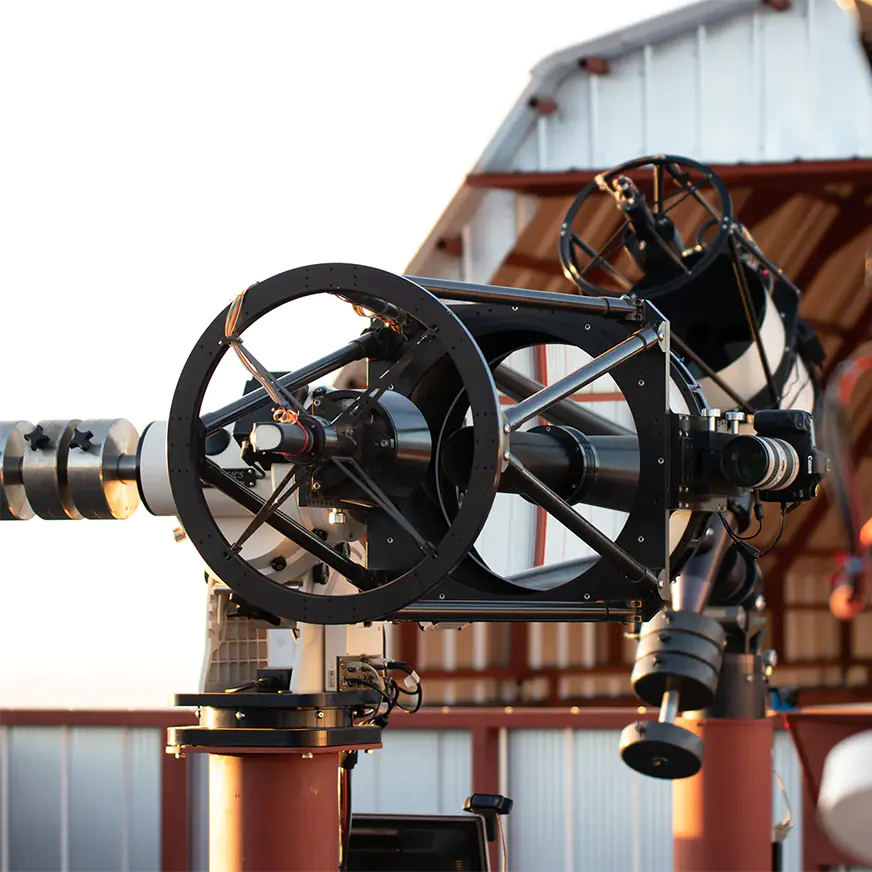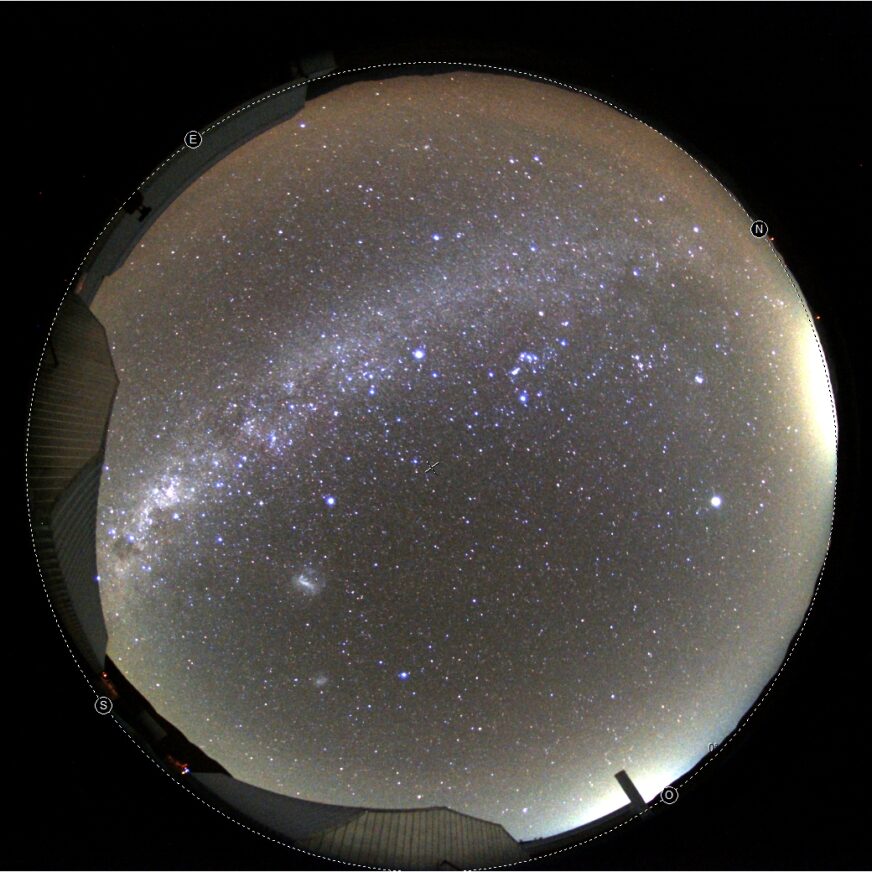We host your telescope under the finest skies in Chile!
Deep Sky Chile has chosen the best astronomical site in Chile for hosting your remotely operated telescope: a flat mountaintop spanning 3 hectares and rising over 5590 feet (1700m) above sea level, well away from light pollution and offering exceptional seeing conditions. Our fully robotic observatories are powered by solar energy, equipped with high-speed internet access, and feature state-of-the-art security and notification systems…
Our on-site technician is proficient in English, French, and Spanish. He is ensuring that your valuable equipment is well cared for. We have been hosting our clients’ telescopes since February 2019 and we are continually expanding our collective observatories to meet growing demand.
Telescopes
Collective observatories
Private Observatories
Share an observatory or have your own
You can choose between hosting your telescope in one of our collective’s roll-off roof observatories or install it in your own private observatory!
Seeing conditions
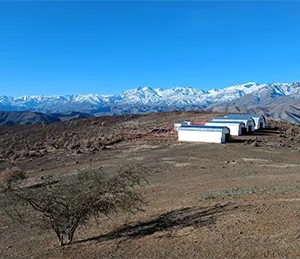
Average seeing value is under one arcsec! An exceptional stability for imaging in very high resolution.
320 Clear Nights per year
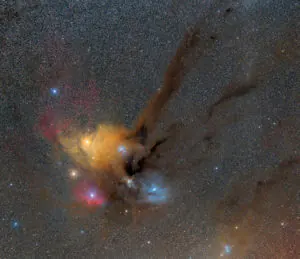
Rio Hurtado valley has one of the highest “ratings” for clear nights anywhere in Chile and in the World.
5590 feet (1700m)
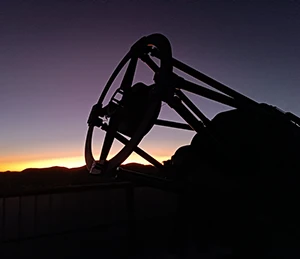
The observatories are located high enough to be above the inversion layer, but not too high to prevent easy year-round accessibility to the site.
Why Rio Hurtado Valley?
We have traveled all over Chile to find the best site to host your telescope. We tested the skies of Atacama and the Elqui Valley, both enjoying a good reputation among astronomers. However, we have noticed that these places have become very touristy and that the authorities are not taking any special measures to limit increasing light pollution. Rio Hurtado valley remained protected. Far away from the big cities, but easily accessible, it offers the darkest skies and the best conditions we have found in Chile. If you still doubt, remember that we share the same sky as Cerro Tololo, Gemini South and the brand new Vera C. Rubin (LSST) observatories…
